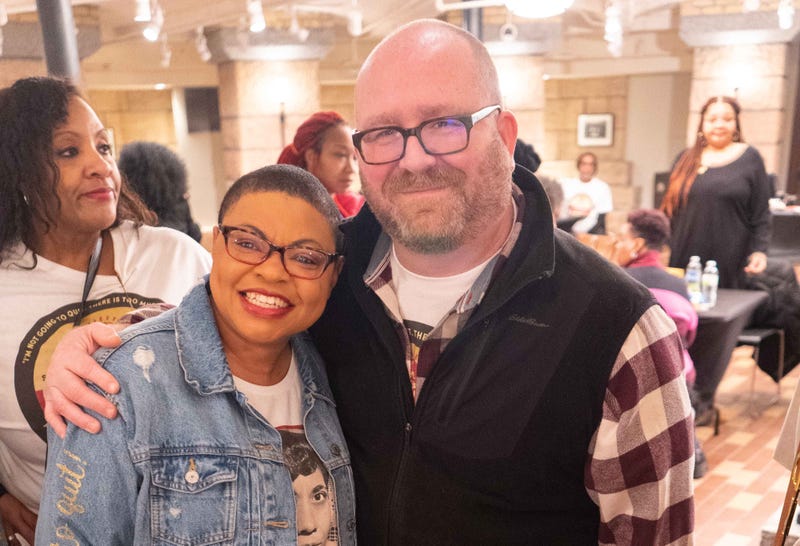
A new national poll is out with some surprising findings about racism.
A Yahoo News/YouGov survey found that Americans who voted for Donald Trump in the 2020 presidential race are likely to believe that racism against white Americans has become a bigger problem than racism against Black Americans.
The survey, conducted earlier this month by YouGov, used a representative sample of U.S. adults, with results weighted by gender, age, race, education, 2020 election turnout and presidential preference, party identification and voter registration status.
On his WCCO Radio show, host Chad Hartman asked WCCO's Sheletta Brundidge for her thoughts on the reasons for the racial divide revealed by the poll. Brundidge speculated that it’s a backlash that comes “when the shoe is on the other foot.” Recently, more business and educational initiatives have been established to offer grants, funding and other opportunities specifically to benefit women or BIPOC citizens.
“For generations only a percentage of our population, primarily white men, got a piece of the pie,” Brundidge said. “They were able to build wealth in neighborhoods the government didn’t run highways through.
Now we see how unfair our great country has been and a few people in positions of power say, let’s fix this. Some things are not coming your way because you’ve always had it. You thought everyone had what you had but we didn’t; we were on the outside looking in.”
Later on her own radio show, Brundidge returned to the findings of the survey. When asked how much of a problem racism currently is, 19% of Trump voters polled by YouGov describe racism against Black Americans as a “big problem.” Twice as many (37%) identified racism against white Americans as a big problem.
Brundidge delved deeper into those results by seeking the opinions of Brian McDaniel, a prominent Republican commentator and lobbyist with Hylden Advocacy and Law; he previously worked for the House GOP Caucus and in the administration of former Gov. Tim Pawlenty, a Republican.
“When we are choosing winner and losers, whoever is on the short end of that stick is not gonna like it,” McDaniel said.
He agreed that the feelings of so called ‘reverse racism’ is likely due to new efforts to right historical wrongs that disadvantaged people of color and created a legacy of inequality with far-reaching implications.
“It’s important that we talk about actual history that is provable, like what happened in Rondo here in Minnesota, certainly with the Tulsa massacre. It wasn’t the case of Black people not being willing to the pull themselves up by their bootstraps but the government actively trying to keep them from becoming equal members of our economic society.”
McDaniel suggested that more frequent and more meaningful interaction between people of different races could ultimately lead to better understanding across-the-board.
“White people think discrimination is happening to them because they’re not talking to Black people. Black people think white people are only looking to hurt them because they’re not talking to white people,” he said. “What we don’t do in America any more is talk to people we don’t agree with.
When we get together we find out there are similar struggles and it’s a lot harder to hate, label and blame other people.”

